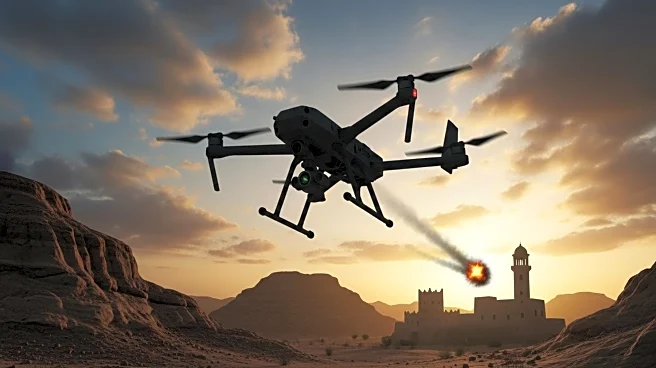What is the story about?
What's Happening?
An Israeli airstrike in Sanaa, Yemen, has killed Ahmed al-Rahawi, the prime minister of the Houthi-controlled government, along with several ministers. The strike occurred during a government workshop and was broadcasted by a rebel-owned television station. The Israeli military confirmed the operation targeted a Houthi military regime. This marks the most significant loss for the Houthis since the Israeli-U.S. campaign began, following the rebels' missile and drone attacks on Israel and shipping routes in the Red Sea.
Why It's Important?
The airstrike represents a critical moment in the ongoing conflict between Israel and the Houthis, potentially leading to further military engagements and regional instability. The disruption of shipping in the Red Sea, a vital trade route, could have significant economic implications globally. The situation may affect diplomatic relations and necessitate international efforts to address the humanitarian impact on Yemen and prevent further escalation.
What's Next?
The Houthis have threatened retaliation, which could lead to increased military actions against Israel and its allies. The international community may need to intervene diplomatically to de-escalate tensions and ensure the safety of shipping routes. The ongoing conflict could prompt discussions on security measures and conflict resolution strategies.
Beyond the Headlines
The airstrike underscores the complexities of regional conflicts and the influence of external powers on local governance and stability. The situation raises ethical considerations regarding military interventions and their impact on civilian populations. The involvement of the Houthis in broader geopolitical conflicts highlights the interconnectedness of regional issues and the challenges of achieving lasting peace.
















